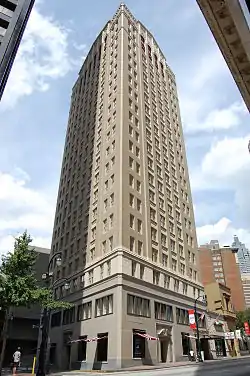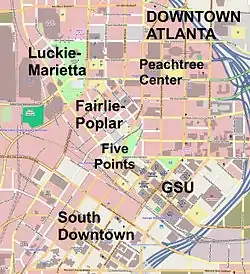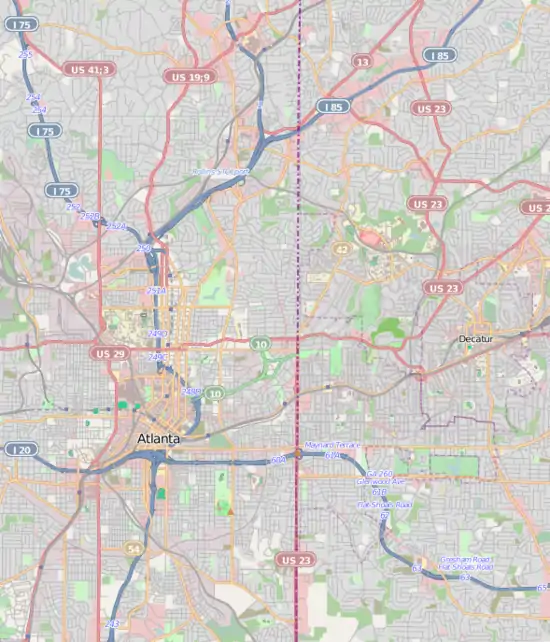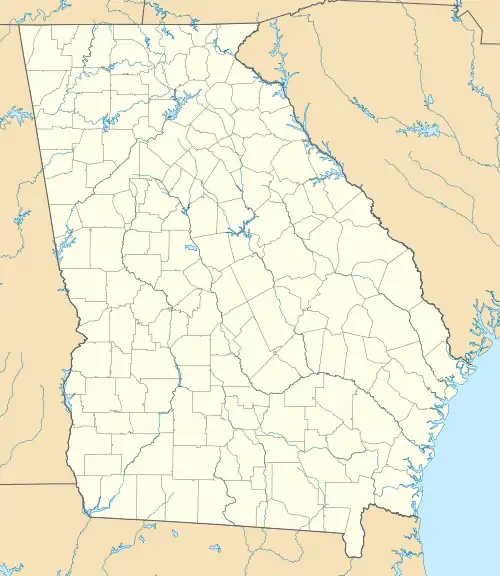Rhodes–Haverty Building
The historic 21-story Rhodes–Haverty Building was, at the time of its construction in 1929, the tallest building in Atlanta, Georgia. Designed by Atlanta architects Pringle and Smith, the building was built by furniture magnates A. G. Rhodes of Rhodes Furniture and J. J. Haverty of Havertys. It remained the tallest building in Atlanta until 1954.[2]
Rhodes–Haverty Building | |
 Rhodes–Haverty Building in 2012 | |
    | |
| Location | 134 Peachtree Street NW Atlanta, Georgia |
|---|---|
| Built | 1929 |
| Architect | Pringle & Smith; Southern Ferro Concrete Co. |
| Architectural style | Romanesque, Skyscraper |
| NRHP reference No. | 79000725 |
| Significant dates | |
| Added to NRHP | January 19, 1979[1] |
| Designated ALB | October 23, 1989 |
The building was converted from office use in 1995-1996[3] to become a Marriott Residence Inn, the Residence Inn Atlanta Downtown.
The building and the district are listed on the National Register of Historic Places.[1]
Origin of name
The building was constructed for the Rhodes Haverty Investment Company, a partnership of furniture magnates Amos G. Rhodes of Rhodes Furniture and J. J. Haverty of Haverty's. It was not named for the Rhodes–Haverty Furniture Company (1889-1908), which had already been dissolved.[4]
Immediately across Peachtree Street is the English-American Building, commonly referred to as the Flatiron Building.
 Rhodes–Haverty Building at lower left (dwarfed by the Equitable Building), looking from north to south.
Rhodes–Haverty Building at lower left (dwarfed by the Equitable Building), looking from north to south.
See also
References
- "National Register Information System". National Register of Historic Places. National Park Service. April 15, 2008. Retrieved October 14, 2010.
- Gournay, Isbaelle (1993). Sams, Gerald W. (ed.). AIA Guide to the Architecture of Atlanta. University of Georgia Press. p. 33. ISBN 978-0-8203-1450-1 – via Google Books.
- PKF International (August 19, 2013). "Proposed Hotel at the GWCC Atlanta, Georgia" (PDF). Retrieved December 14, 2019.
- "Rhodes-Haverty Building". AtlantaGA.gov. Archived from the original on November 20, 2010. Retrieved December 14, 2019.
External links
| Wikimedia Commons has media related to Rhodes-Haverty Building. |